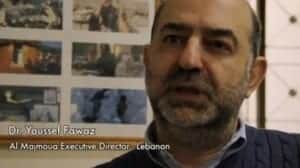Leaders in the microfinance industry find themselves, as Ron Heifetz coined the phrase, “leading in a (permanent) crisis”. From the shock of the financial crisis to the reputational hangover of the challenge in Andra Pradesh to the aftermath of the Arab Spring, there has been little calm in the storm. How leaders have successfully navigated these challenges—whether external shocks or ambitious internal targets—is the focus of Women’s World Banking’s Center for Microfinance Leadership’s All Alumni Webinar Series.
The objective of this series is to provide a platform for leaders to share a current business or strategic issue they are facing, and talk through the leadership and management implications of addressing that particular issue. April’s inaugural webinar featured Nejira Nalic, of MI-BOSPO in Bosnia and Herzegovina, in conversation with Dr. Youssef Fawaz, of Al Majmoua in Lebanon. Dr. Fawaz spoke candidly about his experience managing Al Majmoua with the presence of over 1.5 million refugees fleeing conflict from neighboring Syria. They were joined by Karim Fanous, of Lead Foundation in Egypt, and Janet Abzahk, of Middle East Micro Credit Company in Jordan, who shared their own leadership vantage points from markets facing similar external pressures.
The risky and uncertain

The presence of refugee populations in both Jordan and Lebanon has created a significant shift in the social and economic balance of both countries. In Lebanon, it has created extra expenditures for households, as many Syrians, including clients of Al Majmoua, are acting as host families to refugees. Lebanese informal and small businesses (again, including many of Al Majmoua’s clients) are facing increased competition from refugees’ own economic activities. This is compounded by the fact that refugees are concentrated in some of the poorest areas of Lebanon where unemployment is already high. In a regional, cross-learning moment, Ms. Abzakh noted similar refugee problems in Jordan, where Syrians are willing to work for lower wages.
Institutional impact
Dr. Fawaz shared some of the challenges the refugee crisis presented to the institution. First, while Al Majmoua has not seen an increase in non-performing loans, loan officers are spending more time in the field collecting payments, and clients are making smaller monthly payments. Second, Al Majmoua has experienced an increase in the cost of rent at two of its offices—the result of high inflation rates, ranging between 15 and 30%. Third, the crisis in Lebanon has also attracted multiple international organizations offering more competitive salaries. There is a risk that this can result in the loss of talent for Al Majmoua, specifically among middle and senior management. And again, similar regional experiences came to light: Mr. Fanous of Lead Foundation shared that they also faced staff retention issues following the Egyptian Revolution. People across the country protested for higher wages and Lead “was not immune” from this, losing 200 staff; largely loan officers.
Lessons for leaders
So what skills and tools have these leaders drawn on to cope and excel during this state of crisis?
- Communication: The leaders spoke about the importance of clear communication with clients and staff to create need-based and tailored solutions. Dr. Fawaz described facilitating focus groups with clients to capture their opinions and insights on how the presence of refugees has impacted their social and economic life. He stated that senior management demonstrates openness to listening to staff concerns. This point was echoed by Mr. Fanous who incorporated senior management’s understanding of staff concerns as part of Lead Foundation’s crisis management strategy.
- Contingency planning: Both Dr. Fawaz and Mr. Fanous spoke about the importance of contingency planning. This has been particularly important for Al Majmoua as Lebanon has faced multiple occurrences of social and political unrest over the past 10 years. This history of unrest coupled with religious divisions has led Dr. Fawaz to emphasize and promote cohesion, internally with staff and externally with clients. Al Majmoua has a strong institutional culture and cohesion is “addressed daily at every opportunity.” Dr. Fawaz practices what he preaches, with a management team mixed among political tendencies and religious affiliation—he states that their ability to work well together sets an example for internal cohesion. Externally, Dr. Fawaz is currently exploring several new business options, one of which seeks to reduce tension between the refugee and host populations. Using this approach, Syrian refugees would be included in the existing group lending model and allowing them to belong to the same group as Lebanese women clients allowing them to access loans while integrating with existing clients.
The leaders who make up the more than 300 global alumni of Women’s World Banking’s Center for Microfinance Leadership continue to bring innovative leadership approaches to address real business challenges and share their experiences for continued peer learning. The Center’s Alumni Webinar series will continue to showcase these innovations in 2013, promoting principled, visionary leadership for the industry.
Read through the Twitter feed of the webinar via Storify.
Co-written by Ramatolie Saho and Elizabeth Lynch



